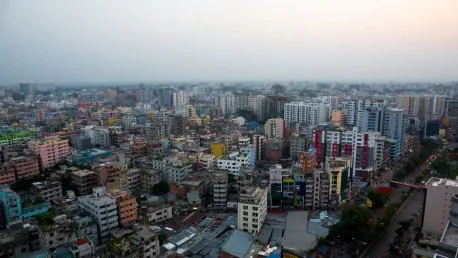In a concerning trend, the private banking sector in Bangladesh has witnessed a substantial increase in bad loans from September 2023 to September 2024. This period saw defaulted loans jump by an alarming 171%, soaring from Tk 29,645 crore to Tk 80,573 crore, according to data from the central bank.
National Bank’s Financial Troubles
One of the most affected institutions is the National Bank, which experienced the highest rate of bad loans. The bank’s defaulted loans reached Tk 23,722 crore, representing a staggering 55.81% of its total disbursed loans. This sharp rise in bad loans has been attributed to massive loan irregularities, poor governance, and infighting among directors. Compounding the bank’s woes is a provision shortfall of Tk 16,614 crore. Following the formation of an interim government in August, the central bank took decisive action by restructuring the boards of eleven banks, including National Bank, in a bid to stabilize the sector.
Impact on Islami Bank Bangladesh
Islami Bank Bangladesh also faced significant challenges as its bad loans increased dramatically to Tk 17,752 crore by September 2024, up from Tk 7,084 crore the previous year. The bank’s financial health was greatly affected by the S Alam Group, a business conglomerate that controlled the board until mid-August 2024. Loans to the S Alam Group and its affiliates accounted for more than half of the bank’s total loan portfolio, exacerbating its bad loan situation.
The Ripple Effect on Other Banks
Other banks, including First Security Islami Bank, Union Bank, and Global Islami Bank, similarly experienced a rise in bad loans. Following management under the S Alam Group, First Security Islami Bank saw its defaulted loans increase by Tk 10,933 crore. Union Bank experienced a rise of Tk 11,374 crore in bad loans, and Global Islami Bank faced an increase of Tk 3,570.91 crore. These increases highlight the widespread impact of poor loan recovery efforts and inefficient management practices.
AB Bank’s Struggles and the Industry-Wide Crisis
AB Bank was no exception, seeing its bad loans rise by Tk 4,176 crore, bringing the total to Tk 10,116 crore by September 2024. Industry insiders point to a common theme of large borrowers defaulting and ineffective loan recovery efforts crippling the banking sector. Overall, the total bad loans in the banking sector reached Tk 284,977.31 crore by September 2024, with Tk 149,806.33 crore—representing 11.88% of total disbursed loans—attributable to 43 private commercial banks. This marked a significant increase from Tk 81,537.81 crore in the previous year.
Expert Predictions
In recent times, the private banking sector in Bangladesh has seen a worrying surge in bad loans. Between September 2023 and September 2024, the amount of defaulted loans skyrocketed by a staggering 171%, climbing from Tk 29,645 crore to an astonishing Tk 80,573 crore. This dramatic increase has raised significant concerns among financial analysts and policymakers. The central bank’s data highlights the growing issue of loan defaults, indicating potential weaknesses in the banking sector’s risk management practices and economic stability. This trend not only jeopardizes the financial health of individual banks but also poses a broader threat to the country’s banking system and overall economic well-being. The reasons behind this spike can be multifaceted, including economic downturns, ineffective loan recovery processes, and possibly even increased cases of financial misconduct. Addressing this issue will require robust policy measures, improved governance, and stronger regulatory oversight to restore confidence in the banking sector and ensure long-term economic stability.









